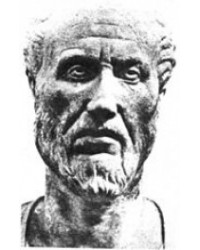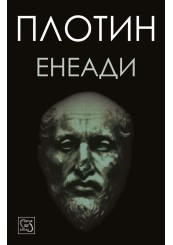Plotinus

Plotinus (c. 204/5–270) was a major Greek-speaking philosopher of the ancient world. In his philosophy, there are three principles: the One, the Intellect, and the Soul. His teacher was Ammonius Saccas and he is of the Platonic tradition. Historians of the 19th century invented the term Neoplatonism and applied it to him and his philosophy which was influential in Late Antiquity. Much of the biographical information about Plotinus comes from Porphyry's preface to his edition of Plotinus' Enneads. His metaphysical writings have inspired centuries of Pagan, Islamic, Jewish, Christian, and Gnostic metaphysicians and mystics.
While in Rome Plotinus also gained the respect of Emperor Gallienus and his wife Salonina. At one point Plotinus attempted to interest Gallienus in rebuilding an abandoned settlement in Campania, known as the 'City of Philosophers', where the inhabitants would live under the constitution set out in Plato's Laws. An Imperial subsidy was never granted, for reasons unknown to Porphyry, who reports the incident.
Porphyry subsequently went to live in Sicily, where word reached him that his former teacher had died. The philosopher spent his final days in seclusion on an estate in Campania which his friend Zethos had bequeathed him. According to the account of Eustochius, who attended him at the end, Plotinus' final words were: "Try to raise the divine in yourselves to the divine in the all." Eustochius records that a snake crept under the bed where Plotinus lay and slipped away through a hole in the wall; at the same moment, the philosopher died.
Plotinus wrote the essays that became the Enneads over a period of several years from ca. 253 until a few months before his death seventeen years later. Porphyry makes note that the Enneads, before being compiled and arranged by himself, were merely the enormous collection of notes and essays which Plotinus used in his lectures and debates, rather than a formal book. Plotinus was unable to revise his own work due to his poor eyesight, yet his writings required extensive editing, according to Porphyry: his master's handwriting was atrocious, he did not properly separate his words, and he cared little for niceties of spelling. Plotinus intensely disliked the editorial process and turned the task to Porphyry, who not only polished them but put them into the arrangement we now have.


